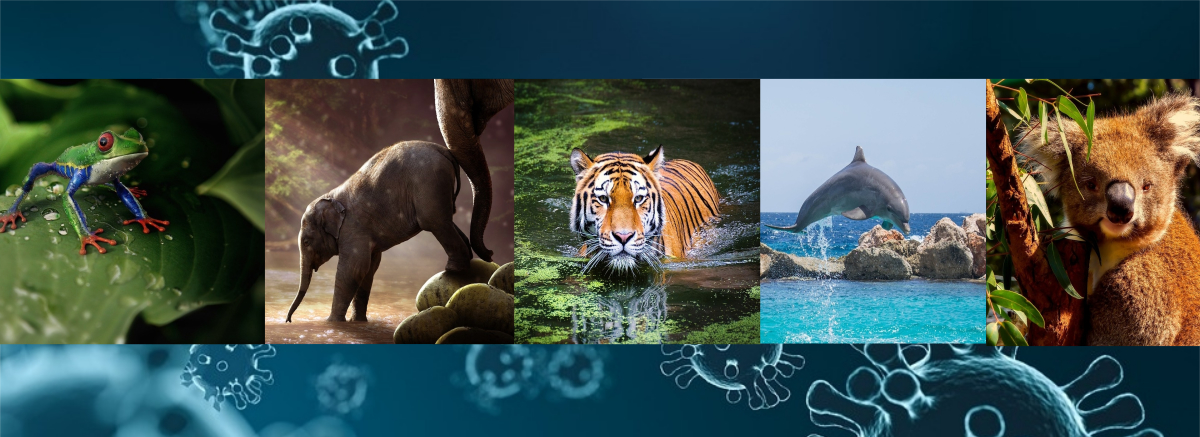Protect Wildlife: Why It’s Important
The world is currently facing a pandemic, a global catastrophe that perhaps has not been experienced in the last hundred years. The coronavirus is spreading, every part of the world is affected, and every individual is affected in one way or another. Blame games are springing up, but one that stands out for us is man’s interference with the ecosystem.
Like most of the previous viral disease outbreaks, the current problem is being claimed to have been a result of animal-human contact. Animal-human contact is mainly due to man’s interference with nature, and our attempt to control wildlife up to a point of hunting simply for pleasure. Perhaps the epidemic is a warning to all of us. With this in mind, you can understand how wildlife conservation shouldn’t be underestimated; there are many benefits that can be derived through this. This article aims at exploring the importance of protecting our wildlife. It will discuss the ways through which wildlife is endangered and the connection between wildlife hunting and their trade in wet markets.
THE IMPORTANCE OF WILDLIFE
The importance of wildlife cannot be overemphasized, from ecological balances to sociocultural, economic, and medicinal values. Appreciation of these aspects not only stresses the need for their protection but also the realization that their extinction will cause humans more harm than good. Despite these benefits, humans continue to engage in activities that endanger wildlife.
Trophy hunting is a billion-dollar business, where people kill wildlife for a set of their body parts including horns, tusks, and skin among others. In some regions, it is legal whereas in others it has been thriving underground for many years. Some animals such as elephants and rhinos are declining at a worrying rate and if no measures are taken, they may be wiped out off the face of the earth.
Hunting and gathering may be activities that earlier human species engaged in mainly for subsistence purposes, but with evolution and advancement in technology, these means of livelihood are not so effective in meeting our needs today. However, despite the fact that these activities are ineffective, outdated, and disruptive, it is still practiced in different parts of the world and they are posing a great danger to the existence of wildlife.
Unlike in the past when hunting was mainly done for food, today people are hunting for different reasons. Some are hunting the animals to keep them alive on their farms, others sell them to the highest bidder, while a significant number are engaged in trophy hunting.
ILLEGAL WILDLIFE TRADE
Illegal wildlife trade has thrived in different parts of the world, from the Americas to Africa to Asia, where animals are removed from their natural setting and transferred to other areas. These black markets have led to a reduction of animals and plants in some regions. Transferring animals to climatic areas where they are not accustomed can endanger their lives. There are cases where these animals have died and given that their numbers are declining in their natural habitats, the reality of extinction is more real today than at any other time.
In places where wildlife trade is legal, poor handling of animals has been a source of serious public health concerns. Most of the disease outbreaks that have occurred in the recent past including the new coronavirus have links to wet markets. Remember that all animals who live in the wild same like humans also get sick but they don’t have someone to bring them to the veterinarian. “Wet markets” are places where produce, meat and fish among other perishable goods are sold at affordable prices as distinguished from “dry markets” which sell durable goods such as fabric and electronics. There is a high likelihood that if proper hygiene measures are not taken diseases can easily spread because there is always a large number of visitors.
The recent pandemic caused by the new Coronavirus “COVID-19” allegedly started in a wet market where wildlife animals were part of the commodities that were traded. The virus appears to have been transmitted from a bat to a pangolin and then to a human, it is claimed that the disease further passed from human to human in a wet market in Wuhan, China, spreading far and wide leading to the current outbreak.
We are careful not the formulate it as a fact because there are no concrete proofs of the origin of this virus, even though the media report it as a fact since the beginning and are indoctrinating people to think a certain way. There is a distinction between the place of origin, which could have been anywhere, and the place of the outbreak. We don’t know if the animals got it naturally if it was injected into them or even if it came from an animal at all. We may never know the truth. But it doesn’t take from the fact that selling wildlife in wet markets is a high-risk activity that could be deadly for the human race. Yet, that same wet market reopened by the end of March selling wildlife under the same conditions as before.
Wet markets wouldn’t be a problem if they take the necessary hygienic measures to sell “healthy” regulated food to the people. Healthy food means organic local produce (no GMOs), and regulated seafood and meat. We often don’t like government involvement but in this case, wet markets should be strongly regulated. It should be a global mandate as there are some countries where there is no control or you also have those countries where the regulations are not strong enough to ensure that the people buying the food will not get sick. It’s easy to clean vegetables but with fish and meat, it’s different. If you buy meat from an animal that is sick there is no way, if you are a regular person, to wash that meat to make it safe to eat. You may even be sick already by touching it or by touching the sellers’ hands if they weren’t wearing gloves when they handed you the package.
Those in favor of stopping the illegal wildlife trade have been quoting the poor handling of animals as the main reason why some of these outbreaks occur, calling for the closure of wet markets. Although it is an extreme measure, some argue that it can go a long way in preventing the transmission of dangerous disease-causing microorganisms from animals to humans. Some are arguing that the wildlife trade should be completely banned as a measure to stop the spread of these dangerous pathogens.

CONCLUSION: PROTECT WILDLIFE
Wildlife protection has more benefits to humans than imagined; their lives and actions in their habitat, along with the fauna they live in, help us survive by sustaining the atmosphere we live in. Apart from ecosystem balance, protecting the wildlife and banning their sale will not only see their number increase and ensure their survival but will help in avoiding transmission of pathogens from animals to humans.
We all have a responsibility to protect wildlife; we should raise our voices against illegal wildlife trade, and vehemently support any attempts that are geared towards wildlife conservation. No matter how little or big our actions are, we can make a difference and ultimately contribute so that wildlife is not endangered to the point of extinction.
Sources:
https://envirocivil.com/environment/why-it-is-important-to-save-wildlife/
https://www.worldbank.org/en/news/feature/2014/03/03/why-you-should-care-about-wildlife
https://www.wwf.org.uk/what-we-do/protecting-wildlife
https://www.worldwildlife.org/initiatives/wildlife-conservation
? Consider a donation to the Amazon Rescue Center or any Animal Rescue Center near you.
.
.
A big THANK YOU to OG and Jenny M who help me finalize this article.
